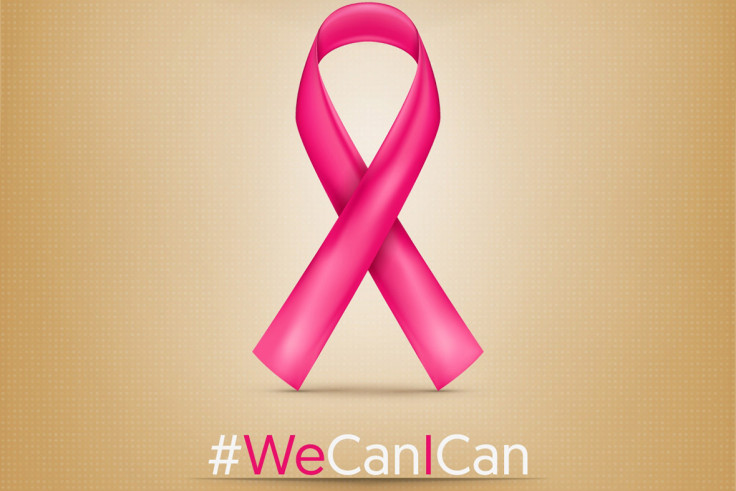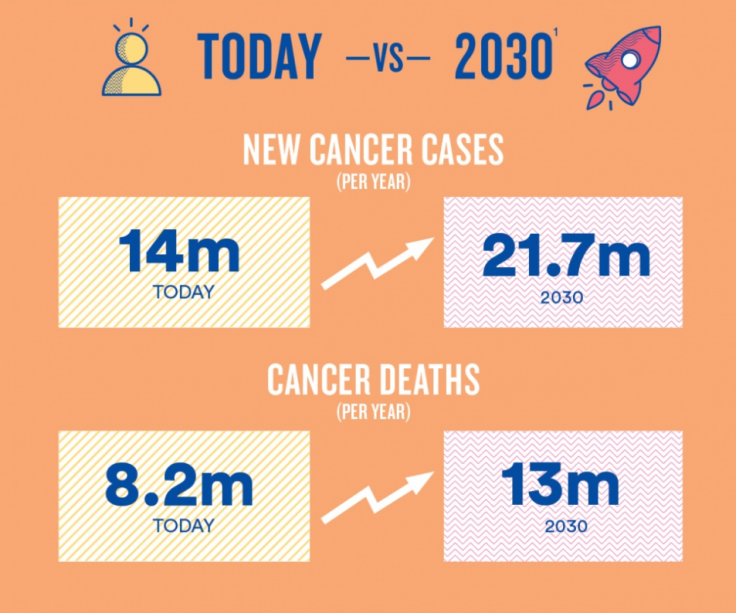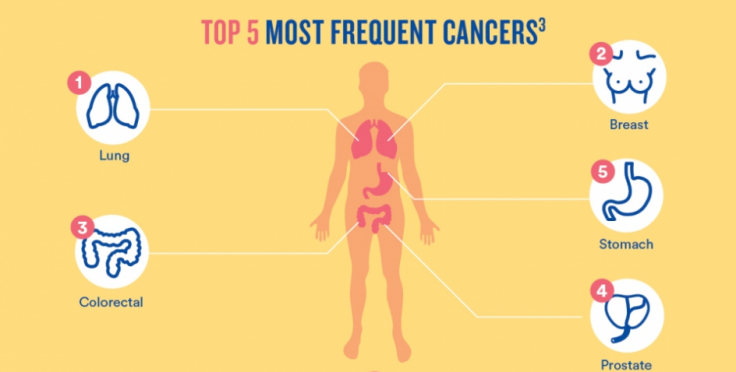World Cancer Day 2017: Theme and facts about one of the world's deadliest diseases
Like in 2016, the day's tagline is 'We can. I can.' showing the need for everyone to act against cancer.

Since the turn of the century, World Cancer Day has been held every year on 4 February. It was established by the Paris Charter adopted at the World Summit against Cancer for the New Millennium in 2000.
Although not an official UN day, World Cancer Day is nonetheless an important means of spreading awareness of the disease around the world.
Between 2016 and 2018, the campaign is taking place under the tagline 'We can. I can.'
Campaigners want to reaffirm that everyone, whether within a community or as individuals, has a role to play in reducing the global burden of cancer.
Facts about a devastating disease
Despite recent scientific progress in finding treatments and improving patients' care, 8.2 million people still die each year from cancer, nearly half of them between the age of 30 and 69. This figure is expected to rise to 11.5 million by 2025 and 13 million by 2030.
Low- and middle-income countries are more affected than high income countries – two thirds of global cancer deaths occur in these places – and this trend is predicted to continue in the next decade.
"The cancer death toll is rising everywhere, but the pace of increase is greater in low-income countries", Dr Andre Ilbawi of the World Health Organization told IBTimes UK.
One of the main reason that mortality is increasing is that the number of new cancer cases is rising. The fact the global population is expanding and ageing may account for this boom in the number of cancer cases being diagnosed as well as the fact that some segments of the population may have become more exposed to risk factors, such as smoking and obesity.

The most common cancers around the world are cancers of the breast, stomach, lung, prostate and colorectal cancer.
The role of early diagnosis
One of the ways to reduce mortality rates is to improve early diagnosis strategies. This is the message that the World Health Organization, working closely with World Cancer Day' organisers, wants to put forward.
There are two ways of improving cancer detection: screening and early diagnosis. While screening seeks out asymptomatic cancers or precancerous lesions without symptoms in the population or in vulnerable groups, early diagnosis is the identification of symptomatic cancer cases in the very early stages of the disease.
"There is a common idea that screening is a more effective strategy than early diagnosis. But it is more resource intensive and in fact, early diagnosis can greatly improve outcomes for cancer sufferers, increase the probability that they will be given effective treatments and reduce treatment morbidity and costs", Ilbawi pointed out.

Ilbawi continued: "It is of course great if we can catch people before symptoms develop, but it is worth integrating early diagnosis strategies into countries' national cancer plans because it also works and can save lives."
On the eve of World Cancer Day, the organisation has issued new guidance to help health services improve their diagnosis capacities, to improve the chances of survival for people living with cancer.
The report lists three steps that need to be taken for early diagnosis of cancer to take place: improving public awareness of different cancer symptoms and making sure people turn to doctors when they identify these symptoms, equipping health services and training health workers so they can conduct accurate and timely diagnostics, and finally making sure people living with cancer can access safe and effective treatment without too many financial barriers.
These objectives will all be promoted on World Cancer Day and are consistent with the day's message that everyone can, in group or or on their own, do something to beat the devastating disease.
"Early diagnosis has often been viewed simply as a matter of increasing awareness. This is important but not enough on its own. It requires efforts from everyone, from patients to healthcare providers and doctors, so that an appropriate referral system is put in place, with appropriate care and timely and accurate diagnosis, and no socioeconomic barriers to care. It is not just about knowing the symptoms but being empowered at every stage as individuals and in our communities", Ilbawi concluded.
© Copyright IBTimes 2025. All rights reserved.






















